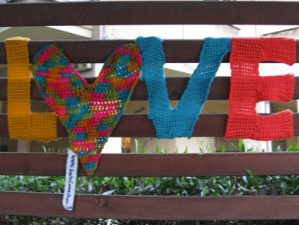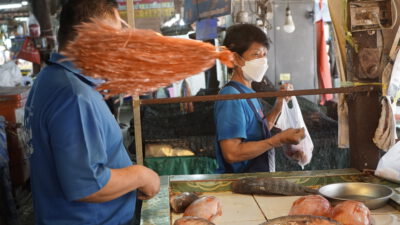 At stake for Oman is the extinction of traditional handicrafts in the face of cheaper, machine made imitations. Man making khanjars (traditional Omani daggers). [image via: v.williams46]
At stake for Oman is the extinction of traditional handicrafts in the face of cheaper, machine made imitations. Man making khanjars (traditional Omani daggers). [image via: v.williams46]
Omani handicrafts – such as silver items, woven cloths, and pottery – may have been passed down from generation to generation and faced difficulties such as material shortages or lack of interest among the younger generation in the past. But now these crafted items face a new challenge: the machine made imitation product.
 Cheaper and almost indistinguishable to foreign tourists, imported machine made imitations of Omani handicrafts are quickly becoming more successful than the originals.
Cheaper and almost indistinguishable to foreign tourists, imported machine made imitations of Omani handicrafts are quickly becoming more successful than the originals.
This means that a far less environmentally friendly consumerism is developing in Oman and that, unfortunately, the number of successful traditional craftsmen is dwindling.
Abdalla al Rahma, a silversmith, makes high quality coffee pots, jewelry and daggers that are bought mostly by wealthy families and government offices. A trader at the Bahla market says that far less expensive versions of Mr. al Rahma’s coffee pots are made in India, the Philippines, and Malaysia. “Basically, they are a copy of the handmade coffeepots traditionally made in Oman. You can tell the difference from the workmanship and durability,” he said.
(Check out the beautiful traditional silver Omani jewelry to the left, image via: jordancraftcenter]
Hamoud al Esry, a 66-year-old potter who works in his 200 year old family workshop in the Dakhliya region, said that no electricity or modern technology was necessary in his shop. His kiln has always been fueled by wood, palm fronds and occasionally coal. “Machine-made pots and vessels are a poor copy of what we make here in Bahla. I still have the ones my grandfather made a hundred years ago in this same workshop,” he said.
Mr. al Esry added that “it is up to our children to continue this trading heritage. Cheap imported products will always be around. If we have survived it then they will if they have faith in it.”
Buying local, handmade products is always a more environmentally friendly choice than machine made and/or imported products. The sad story of the Omani handicrafts is yet another reminder to be conscious of our shopping decisions.
Read more about traditional handicrafts:
Buying Fair Trade from the Hands of Local Craftswomen
Upcoming Giftec Exhibition in Tel Aviv to Feature Local Palestinian Handicrafts
The Bedouin Ladies of Lakia Weave Together Women and Tradition



i am manufacturer of daggers and swords